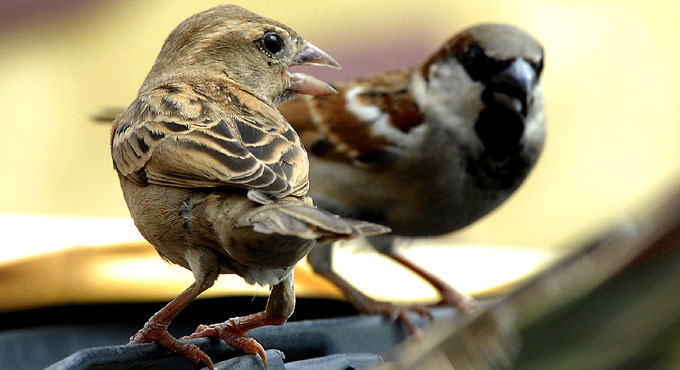Needed: A pro-biodiversity existence
We Asked: How do you think we can create a more pro-biodiversity (say, birds and butterflies) environment around us?
An ecological life-support system is the need of the hour. Drawing a simile with vitamins, minerals and a well balanced diet required by our body to develop a good immunity system, so is the case by our grasping environment. A large percentage of the world’s economy is dependent on biological resources thereby leading to amassing of a rich biodiversity, defined as biological variety and variability, of both flora and fauna. It is this biodiversity on which rely our food, tourism, pharmaceutical, textile, fishing industries to name a few. A rich biodiversity provides a rich ecosystem supplying air, water, soil, pollinators like bees and birds, waste management by microorganisms, leading to a disease free and healthy environment. The present pandemic has driven us ‘home’ into a thought provoking scenario. The question at hand: Where did we go wrong and how do we rectify this to attain sustainability? Biodiversity boosts the frail ecosystem where the contribution of each living organism- be it any plant or animal species- plays a vital role. Surprisingly the answer to the afore-asked question also lies dormant within us. We need to get back to our roots which are literally embedded in the soil. Our cultural values derived from our age old beliefs of nurturing our endemic species of both plants and animals, through spirituality and aesthetic appreciation, our ecological support provided by the forests, rightly referred to as lungs of living species, our economic biodiversity providing raw materials for our production and consumption and above all our scientific diversity guiding us onto a plethora of ecological data through which man has successfully reached our neighbouring planet-Mars! Thus the Herculean task at hand is to: Save the bees, plant local flowers, fruits and vegetables, respect local habitats, take shorter showers, support local farms regularly buying from small local farmers at nearby markets, thereby boosting local economy and supporting agricultural efforts to conserve biodiversity and last, but not the least, knowing our resources which cater to everyone’s need but not everyone’s greed! -Neeru Dwivedi, academician
The past more than one year has been a pandemic-induced nightmare. But going back to the good old pre-Covid days, when did you last see a child running after a butterfly in a park? When was the last time you stepped out into your verandah and were mesmerized by the magic bug, the glowing firefly? Urban sprawls with concrete jungles sprouting up rapidly at the cost of green space have snatched away the habitats of not only birds and monkeys, but also butterflies, bees and many beneficial bugs so essential for bio-diversity. Butterflies are central pollinators, essential for many fruit and flowering plants. They are indicators of a healthy eco-system. Should you wish to do your bid for a healthy biodiversity, plant flowers in clusters! Butterflies are near-sighted and easily make for the nearest cluster of flowering plants. If you have a small garden space, try to rope in neighbours to do likewise. Also let there be some foliage in your garden space for the caterpillars to feed on. And do not sprinkle pesticide, thinking the caterpillars or larvae may turn into moths. Even those are harmless. Fireflies or glow worms do not bite or sting, nor carry disease. These wonder bugs lay their eggs on dead , preferably damp wood, so should you chance upon something like this in your garden or anywhere else, do not destroy it. Similarly, leave a hive alone, whether it is of bees’ or wasps. They are harmless unless provoked. With spreading awareness, many people put out water on their balconies for birds, but some forget to replenish the feed and water dishes. More sensitivity is needed in this regard. If they build nests in alcoves in your house, stay away from that space till the fledglings hatch out. These overtures do not require much except a little bit of conscious effort, but they are a massive investment towards a healthy planet and in the interest of future generations. -Achala Misra, senior journalist
Topic of the month: Every year, ‘record plantation’ is done, but no greenery is evident around us. What are the causes for the same and how in your opinion can we get a greener world around us? You may send your views in 200 words at treetakemagazine@gmail. Please also attach a colour photo of yourself.
















Leave a comment